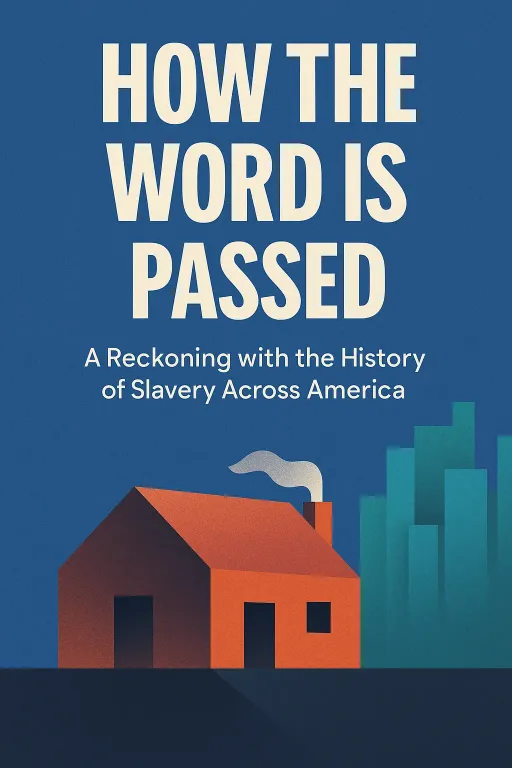
Gerald R. Ford
10 minAn Honorable Life
Introduction
Narrator: On September 22, 1975, a former Marine named Oliver Sipple saw a woman in a San Francisco crowd raise a gun and point it at the President of the United States. He reacted instantly, lunging forward and deflecting her arm just as she fired. The shot went wild, and a life was saved. Sipple was a hero. But his story didn't end with a medal. It ended in tragedy. The media, in celebrating his heroism, also uncovered a secret: Sipple was gay. They outed him to the nation, and his conservative family, learning the news not from him but from the papers, disowned him. He sued for invasion of privacy and lost. The man who saved a president died alone, plagued by the consequences of his brave act.
This strange, sad story is the dedication of Richard Norton Smith’s biography, Gerald R. Ford: An Honorable Life. It serves as a powerful entry point into the world of a man often remembered as simple, decent, and perhaps a little dull. But Smith’s work reveals that behind the "nice guy" image was a figure of surprising complexity, ambition, and a profound capacity for making shocking decisions that would change the course of American history.
The Man Behind the Name
Key Insight 1
Narrator: Before he was Gerald R. Ford, he was Leslie King Jr., born into a life of wealth, privilege, and terror. Just two weeks after his birth in 1913, his mother, Dorothy, fled her marriage, fearing for her life and the life of her son at the hands of her abusive, brutish husband. She found refuge in Grand Rapids, Michigan, where she eventually remarried a local businessman named Gerald Ford Sr.
The young boy, known as "Junie," grew up in a new family, but the shadow of his past remained. Throughout his childhood, he was known by a confusing array of names—Junior King, Junior Ford, or just Junie. This instability was a quiet but constant presence in his life. The truth of his parentage was a secret kept from him until he was a teenager, when his biological father, Leslie King Sr., unexpectedly appeared, demanding money. The encounter was jarring and left the young Ford with a deep sense of loyalty to the man who had actually raised him.
The issue was finally resolved when, at fifteen, he was officially rebranded as Gerald R. Ford Junior. This name change wasn't just a legal formality; it was the solidification of an identity. It marked the moment he fully shed the chaotic legacy of Leslie King and embraced the stability and values of the Ford family. This early experience with family trauma and hidden truths forged a man who valued stability, loyalty, and straightforwardness above all else, qualities that would define his entire political career.
The Politics of Plain Dealing
Key Insight 2
Narrator: Long before he entered the White House, Gerald Ford built a remarkable career in Congress on a simple, powerful principle: he made everyone else’s problems his own. For Ford, leadership was not about grand ideological pronouncements; it was constituent service on a national scale. His political success was built on a reputation for decency and relentless hard work, a reputation earned through countless small, personal acts.
One early story tells of a member of the Daughters of the American Revolution who was visiting Washington, fell, and broke her ankle. With no way to get home to Michigan, Ford simply offered to drive her there himself. This was his method: direct, personal, and practical. He believed the strongest weapon in politics was "the good credited to you by word of mouth."
This pragmatic mindset extended to his family. When his son Steve wanted to make the freshman football team, Ford didn't just offer encouragement. He identified a specific need—no one could reliably snap the ball for punts—and spent hours in the backyard teaching his son the skill he’d mastered as a center for the University of Michigan. Steve made the team. This was Ford’s approach to everything: find the functional problem and solve it. It was this reputation for being a reliable, hardworking problem-solver, someone who could be trusted to clean up a mess, that made him an acceptable choice for Vice President when Spiro Agnew resigned, and ultimately, for President.
A Capacity for Surprise
Key Insight 3
Narrator: The common image of Gerald Ford is that of an ordinary man thrust into an extraordinary position. But this view misses the core of his character: a stunning capacity for surprise. Ford consistently defied expectations, making decisions that were politically risky, personally costly, and often shocking.
The most famous example, of course, was his pardon of Richard Nixon in September 1974. The nation was still reeling from Watergate, and the pardon was met with immediate and widespread outrage. Ford’s approval rating plummeted twenty-two points overnight, the largest drop in polling history. He knew the political cost. He privately told an aide, "Nixon really fucked up the pea patch. It will cost me the ’76 election, but I had to do it." He believed the country could not move forward while a former president faced a protracted and divisive trial. It was a calculated, controversial act of leadership that likely cost him the presidency, but one he felt was necessary for the nation's healing.
His surprises weren't always so monumental. In 1975, he invited Senator George McGovern, a fierce opponent of the Vietnam War who had been ostracized by previous presidents, to a White House dinner. When McGovern expressed his shock, Ford simply replied, "That’s why I asked you." He believed the White House belonged to everyone. This capacity for surprise even extended to himself. During his tough 1976 campaign, his strategist Stu Spencer, frustrated with Ford's plodding style, finally told him bluntly, "Forgive me, Mr. President, as a campaigner, you’re no fucking good." Instead of being offended, Ford was amused and later leaked the story to a journalist himself, demonstrating a humility and self-awareness that was anything but ordinary.
The Bridge to a New Era
Key Insight 4
Narrator: Ford’s presidency, though brief, served as a crucial bridge between two distinct eras of Republicanism: the pragmatism of the Nixon years and the more doctrinaire conservatism of the Reagan revolution. He inherited a nation in crisis—economically, politically, and spiritually—and his actions, while often unpopular at the time, laid the groundwork for the policies that would follow.
He was a transitional figure, navigating the turbulent crosscurrents of a party in flux. This was clear in his handling of foreign policy and domestic politics. For instance, when Secretary of State Henry Kissinger planned a trip to Africa to signal support for Black majority rule, it was seen as politically dangerous. Ford was facing a primary challenge from the right by Ronald Reagan, and advisors like a young James Baker warned him that the move would alienate conservative voters in Texas.
Baker urged Ford to at least cancel the splashy press conference announcing the trip. Ford listened patiently, puffing on his pipe, and then made his decision. The trip and the announcement would proceed. He told his staff, "The thinking Republicans in Texas will understand." It was a statement of principle over political expediency. While he was a staunch Republican, he was not an ideologue. He governed with a pragmatism that sought solutions, whether through economic deregulation or energy initiatives, that often foreshadowed the policies of the Reagan administration. He was the essential, stabilizing force that allowed the country, and his party, to move from the chaos of Watergate toward its future.
Conclusion
Narrator: The single most important takeaway from Gerald R. Ford: An Honorable Life is that Ford's perceived ordinariness was not a weakness but a unique form of strength. It was a disguise for a man of deep ambition, savvy, and unwavering integrity. This unassuming demeanor allowed him to perform the most difficult and thankless task of his era: healing a nation by absorbing its anger. He willingly sacrificed his own political future to pardon Richard Nixon, a decision he believed was essential to restoring a sense of order and allowing the country to move past its deepest political trauma.
The book challenges us to reconsider what we value in our leaders. In an age that often rewards charisma and spectacle, Ford’s legacy is a quiet testament to the power of decency, duty, and the courage to make unpopular choices for the greater good. It leaves us with a critical question: Do we have the wisdom to recognize honorable leadership when it appears not in a grand gesture, but in the steady, unglamorous work of cleaning up another’s mess?









